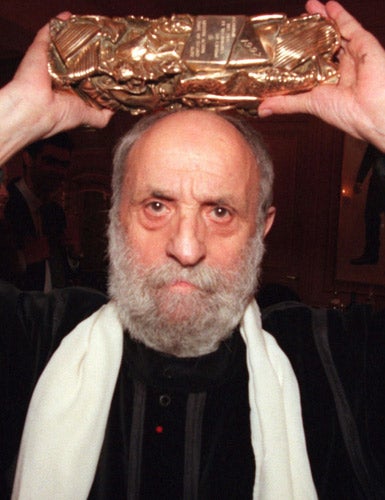Embattled French minister in fresh tax scandal

Twelve years after his death, the avant-garde French sculptor César is still generating disputes as dense and convoluted as his metalwork creations.
The French Employment Minister, Eric Woerth – already implicated in the L'Oréal family-feud scandal – was accused yesterday of intervening to cut €27m (£22m) from the inheritance taxes demanded from César Baldaccini's heirs by the French state.
The newspaper Libération published extracts from a letter which appeared to show that, when he was Budget Minister in 2008, Mr Woerth had personally intervened in the case at the request of César's executor, Alain Dominique Perrin.
Mr Perrin, a luxury goods tycoon, is a leading financial contributor to the Union pour un Mouvement Populaire (UMP), the centre-right political party of President Nicolas Sarkozy. At the time of the letter, Mr Woerth was party treasurer and the minister responsible for tracking large-scale tax fraud.
Liberation reported that the letter proved "without ambiguity" that Mr Woerth had abused his position to help large party donors – something he has adamantly denied in the scandal surrounding Liliane Bettencourt, France's wealthiest woman and the chief shareholder of L'Oréal. By the end of the day, however, both Mr Woerth and Mr Perrin had hit back in an effort to squash the newspaper's allegations as flat as a César sculpture. (The artist was famous, or infamous, for his "compressed" sculptures of new cars and other metal objects which had been put through his own scrapyard crusher.)
Mr Perrin said that the letter published by Liberation amounted to "the work of a forger". Photocopied extracts, he said, had been selected to give a misleading impression of the nature of Mr Woerth's intervention. "I met Eric Woerth for five minutes, just as I spoke to all his predecessors since 1998 when César died," he told the radio station Europe 1.
The enormous demand by the French state for unpaid taxes was based on a belief that 175 of César's works had been sold without being reported to the revenue services, Mr Perrin said.
This had also been the subject of a long legal dispute between César's wife and daughter on one side and his final mistress on the other, he added.
When the legal case was dismissed, the tax demands also changed, he said. "All that Mr Woerth did was to follow the normal procedures for reducing a tax demand which had been based on mistaken information," Mr Perrin said.
In another part of the original letter, he said Mr Woerth had warned that investigations of other alleged unpaid taxes by César would still go ahead. This passage was not shown, or quoted, by Liberation.
The allegations may be the last attempt by the French media to keep the "Woerth-Bettencourt" affair alive before France plunges into its annual August sabbatical from politics.
Join our commenting forum
Join thought-provoking conversations, follow other Independent readers and see their replies
Comments